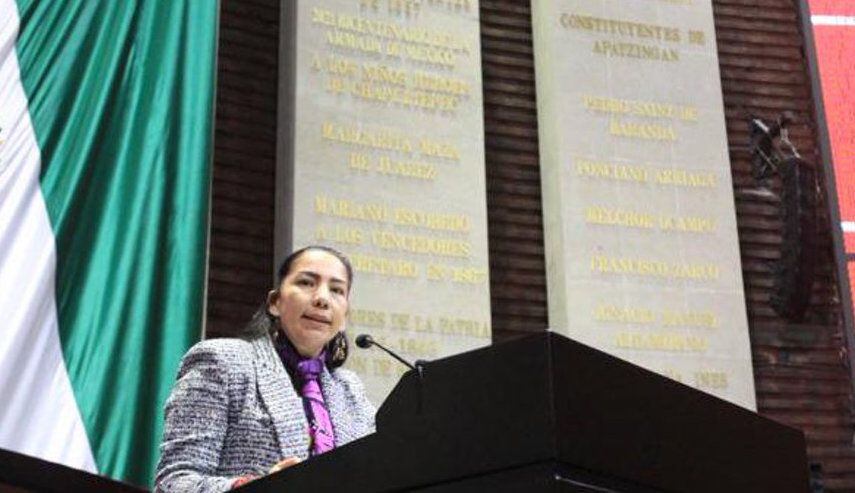
The deputy of the Party of the Democratic Revolution (PRD), Olga Luz Espinosa, introduced a bill to eliminate the summer time, because he argued that this has caused various effects on the health of Mexican society.
The perredist highlighted that some of the health problems that Mexicans face in the face of change are flus, drowsiness, eating and digestive disorders, headache, nervousness and lack of restful rest.
Olga Luz Espinosa cited a study by the Faculty of Medicine of the National Autonomous University of Mexico (UNAM), dated April last year, in which it is established that changes in schedules affect individuals and groups that have a biologically and psycho-emotional inflexible structure.

“The source consulted states that doctors have indicated that increasing one hour a day implies greater exposure to high temperatures in the sun, increases dehydration and, in the long term, skin cancer. Adults become more irritable and violent, therefore, more prone to accidents or problems of social interaction,” said the perredist
The proposal was published in the Parliamentary Gazette of the Chamber of Deputies and adds to the initiative presented by the legislator of the Labour Party (PT), Gerardo Fernández Noroña, on March 17. On that occasion, in addition to pointing out Luz Espinosa's points, the petista argued that “people are forced to change their travel times”.
“There is medical evidence that, as a consequence of this modification, sleep disturbances are generated by affecting the heart rate and increasing the feeling of tiredness, irritability or changing mood,” Fernández Noroña said at the time. “There are plenty of scientific, health and other reasons. It is time to stop attacking the general population, to benefit a few,” he added.

For his part, the coordinator of the bench of the National Regeneration Movement (Morena), Ignacio Mier, rejected the initiatives Luz Espinosa and Fernández Noroña, however, asked for seriousness in the matter.
He also confirmed that the Political Coordination Board (Jucopo) in San Lázaro agreed to conduct a technical and economic review with the relevant authorities.
The Time System Law in Mexico states that any proposal to modify seasonal schedules must be submitted to the Congress of the Union no later than November 15 of the year immediately prior to which it is intended to modify the schedule, it is that is, the initiative to eliminate the application of daylight saving time will have to be presented in the coming months if citizens are to be free from this change in 2023.

Both the Chamber of Deputies and Senators have their second sessions from September to December, so this initiative would have to be discussed and approved with some speed so that the respective decree can be issued no later than December 15, or else the elimination of the controversial one daylight saving time would be delayed until 2024.
That is, a bill to eliminate the time change that applies every year during the first Sunday of April and the last Sunday of October, should be submitted in September to meet the legal deadlines that allow Mexicans' watches to no longer be altered by 2023.
KEEP READING:
Últimas Noticias
Debanhi Escobar: they secured the motel where she was found lifeless in a cistern
Members of the Specialized Prosecutor's Office in Nuevo León secured the Nueva Castilla Motel as part of the investigations into the case

The oldest person in the world died at the age of 119
Kane Tanaka lived in Japan. She was born six months earlier than George Orwell, the same year that the Wright brothers first flew, and Marie Curie became the first woman to win a Nobel Prize

Macabre find in CDMX: they left a body bagged and tied in a taxi
The body was left in the back seats of the car. It was covered with black bags and tied with industrial tape
The eagles of America will face Manchester City in a duel of legends. Here are the details
The top Mexican football champion will play a match with Pep Guardiola's squad in the Lone Star Cup

Why is it good to bring dogs out to know the world when they are puppies
A so-called protection against the spread of diseases threatens the integral development of dogs




